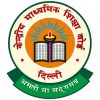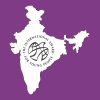Political science in school is a social and scientific field of study for students. The usual buzz post the Secondary Board examinations are the selection dilemma around the specialization of subjects and streams. Some students opt for Science and Commerce while others go for humanities. Sometimes students select a subject under peer pressure and lack of information. It is vital that all the students are appraised with various career paths and their benefits to help them make an informative decision regarding their choice of subjects in Higher Secondary classes. One of the subjects which enjoy enormous significance and attention is Political Science.
What is Political Science?
The term Political Science was first coined by an ancient Greek Philosopher, Aristotle. It is the study of politics and power from domestic, international, and comparative perspectives. It is a social science dealing with systems of governance and power, the analysis of political activities, political thoughts political behaviour, and associated constitutions and laws. It is also called the scientific study of politics.
Political Science : Why is it called a Science?
It is important to understand and differentiate between forms of science. Word “Science” is often associated and perceived in synonym with Natural Science where personals are pictured in white lab-coats, using experiments to explain the phenomenon of nature around us. Political Science is a branch of science which differs from the natural science but works on the similar principals. It is a systematic study of governance by the application of empirical and generally scientific methods of analysis.
Symbiotic relationship with other disciplines
What distinguishes political science in school as an academic discipline is its emphasis on government and power. However, the study of government and power is not confined to political science alone. It naturally permeates into another subject arena as well. Economics is a great example of mutual relationships between disciplines. Economics and political processes are closely Knit together as it is the actions of political institutions which frames the economic activities of a country. Vice versa, Economic conditions can have a direct influence on political institutions too. Example: Demonetisation of high value currency notes in 2016 was a political decision which directly impacted the economy of our country. Likewise, Political science also has cross disciplinary connection with other subjects like Sociology, Psychology, and Anthropology and so on.
Sub- Discipline of Political Science
Today Political science in school is taught all over the world, in Colleges and Universities. Political Science in India has taken a quantum leap both in terms of quality and quantity and has multiple sub disciples. Though these sub disciplines are usually taught separately in depth in colleges, in schools too students are enlightened about the important subdisciplines. Some of the sub-disciplines are:
Comparative Politics: Comparative politics involves the study of the politics of different or similar group of nations. For example, a comparative study of India and USA as both are Democracies but function in a different manner.

Political Theory: In today’s time we often find ourselves discussing ideals like Liberty, Equality, and Justice. We debate on the ideas of Marxism, Liberalism etc. Political theory involves the study of philosophical thought about politics from ancient Greece to the present.
Indian Politics: It is a study of important events which has shaped the nature of politics in India from time to time.
International Relations: As the name says, it is the study of the interactions between nations, international organizations, and multinational corporations. We can say Politics is a backbone
of International Relations.
Public Administration: It is a science and practice of effectively managing the government. Bureaucracy is at the heart of running the country as the permanent executives. This sub-discipline enlightens us about the activities of the executive branches at national, state and local level.
The Significance of Political Science
One may often wonder about choosing Political Science in school as a subject and question its importance in his/her career. However, it is noteworthy to understand that it not only provides one with an array of lucrative career choices but also prepares them for the real-life challenges, which they will face as a part of society. Politics is not something that is only prevalent in India or in other countries at the national and international platforms but persists in every realm of our lives.
Today everything is connected (thanks to globalization) and with the fast pace of changing environment, it is crucial to keep ourselves updated on world affairs. Political science not only makes us aware of global issues but also helps us to form opinions.
Further, studying this discipline makes you a substantial contributor to society. The scientific approach of this discipline helps you possess analytical skills. You begin to understand how and why decisions are being made; what are the consequences of such a decision. It makes you a responsible citizen, a global leader and inculcates values that help bring changes in society.
Author: Ms. Neha Singh
Faculty, TCIS






